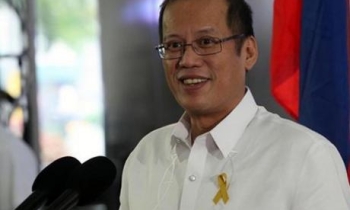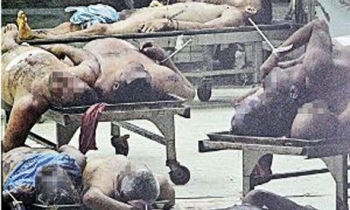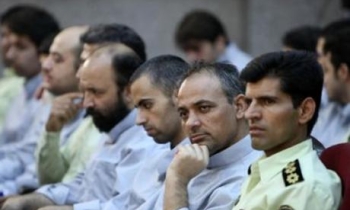The idyllic charm of the Maldives belies the numerous cases of arbitrary arrests, detention, harassment and intimidation of media practitioners, an international factfinding mission to the country has revealed. Journalists covering political and social events and demonstrations, as well as the participants in those demonstrations, have been the victims of excessive use of force by security forces.

In all cases, the security forces acted with impunity for their (the mediopersons') actions. The mission also recorded cases of death threats and verbal intimidation against journalists, both within independent and state media, with the resulting chilling effect on freedom of expression. The delegation comprised members from Article XIX, Reporters sans Frontières (RSF), International Media Support (IMS), International Federation of Journalists (IFJ), and South Asia Press Commission (SAPC).
These organisations are members of the International Press Freedom Mission, a group of 14 institutions, including United Nations agencies, global media associations, freedom of expression advocates and media development organisations, that was formed in 2005 originally to address the then deteriorating situation in Nepal, but which also follows press freedom and freedom of expression issues more widely in South Asia as per the mandates of the respective members.
The five organisations visited Maldives during May this year and met individuals and institutions representing a broad spectrum of opinion on the current press freedom and freedom of expression situation in the country. Among those the mission met included government ministries and institutions, political parties, police and security forces, civil society representatives, international community, and a cross-section of the media.
The continued detention and house arrest of a number of journalists is an issue of serious concern, the mission said in a report, as are the charges against five journalists and editors working for Minivan, "which would appear to constitute a concerted effort by the authorities to target this publication." In addition, the mission deplored the abuse of Interpol procedures against exiled journalists and overseas Maldivian media, the blocking of Dhivehi Observer and Maldives Culture websites, and the jamming of the shortwave frequency of Minivan Radio.

Although the Maldives government is taking steps to improve the press freedom environment in the country through the "roadmap" for the reform agenda, the proposed draft Bill on Press Freedom fails to meet international standards on freedom of expression, the mission said. Its analysis of the draft Bill shows that restrictions on freedom of expression are too broadly and vaguely worded and therefore can be easily abused for political purposes.
The draft Bill proposes a number of media crimes but fails to provide sufficient protective measures for freedom of the media. In this regard, the mission offered its expertise in assisting the redrafting process for the Press Freedom Bill, as well as the other pieces of pending draft legislation relating to the media and freedom of expression.
Tensions between the government and the political opposition continue, with the roadmap for reform a bone of serious contention. The government accuses the opposition of purposely obstructing the reform process for their own political gain and to discredit the authorities, as well as to extract maximum capital over the pending legal cases against members of the opposition Maldivian Democratic Party (MDP).
Members of the opposition, on the other hand, accuse the government of Maumoon Abdul Gayoom's Dhivehi Rayyithunge Party (DRP) - or the Maldivian Peoples Party of insincerity in undertaking the reforms and failure to adhere to the set deadlines, with the deliberate intention of postponing any chance for substantive change until after the 2008 elections.

The sharply polarised political scenario of the Maldives is reflected in the media landscape, the mission found. Newspapers and websites often engage in name calling and personal insults. This kind of slanderous material has been reported by all sides.
The mission was also informed about alleged cases of stones being thrown by the opposition Maldivian Democratic Party (MDP) supporters at journalists from the public media, like TV Maldives. However, those who were critical of the government have had little or no recourse when they were targeted. In contrast, the presenter from state-owned TV Maldives was offered protection and a safe house in August 2005 following harassment and intimidation.
The privately-owned print media has won an increasing degree of credibility through revelations about corruption and reporting on hitherto taboo subjects, such as the rehabilitation of drug addicts and police violence. The weekly Adduvas sold tens of thousands of copies of one of its issues in December 2005, which had sensational revelations about the granting of loans on very favourable terms to senior officials, including the chief of police.
This boldness, the report pointed out, has had adverse consequences for some. Adduvas editor Aishath Velezinee has received death threats. Poet Ibrahim Manik was beaten up by police officers after writing for Minivan. Seven journalists have been arrested since June 2005 and around 20 reportedly been threatened. Government officials and the allies of President Gayoom, have allegedly been responsible for most of the harassment, although state media presenters and reporters have also reportedly been harassed by supporters of the political opposition.

Launched by journalist and senior MDP leader Mohamed Nasheed "Anni" in June 2005, the opposition newspaper Minivan has been singled out for repression due to its bold views and open hostility to the government. All the officials and state media journalists that the mission met criticised Minivan.
The information minister says that "it doesn't even deserve to be called a newspaper", while the police chief alleges, "they call for murder and respect nothing". "Minivan has become a firebrand that puts many people's lives in danger, including our journalists" said the head of TV Maldives. In addition to a lack of professionalism and incitement to violence, Minivan has also been accused of degrading the Maldivian language, Dhivehi, through using "street" terminology and not adhering to linguistic standards.
Minivan's founders and journalists defend themselves, while also acknowledging the anti-government stance that the publication currently takes. "The newspaper gives the people the free speech that was confiscated by the Gayoom regime for too long," said Nasheed, who is under house arrest in Malé.
"We are victims of attacks, insults and sanctions because we take the democratic movement's side," asserts Minivan editor Aminath Najeeb. "Charges of treason, drug trafficking, theft and sedition against Minivan journalists are all part of a government strategy to silence a newspaper that is a nuisance," argues Mairya Didi, a lawyer and MDP parliamentarian.

It would appear that despite the encouraging announcements and steps of the past years, the authorities have not abandoned old methods of harassment and intimidation in the case of Minivan and other critical publications such as Manas, Fiyas and Adduvas. The arrests and direct or indirect threats contradict the government's undertakings to respect press freedom. They create a climate of fear and mistrust – at least one journalist left Minivan to avoid arrest – that is harmful to the reform process.
The foreign press is able to work relatively freely in the Maldives although at least one foreign journalist, Paul Roberts, editor of the Minivannews website, is blacklisted and other foreigners – lawyers and human rights activists who support the opposition – are banned from entering the country. The mission representatives did not come across any cases of foreign media, including websites, being censored.









